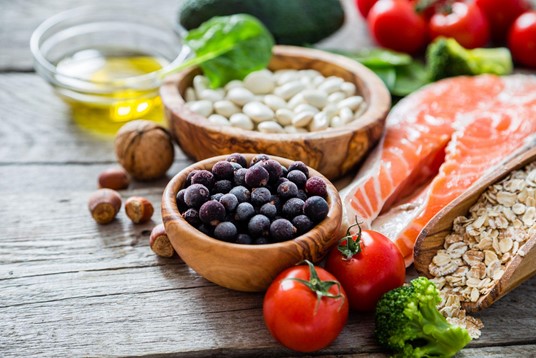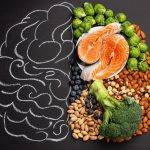When you’re ready to hit the gym, you want to make sure your body is prepared for a great workout. But what about those days when you’ve just completed an intense fight and need to recover quickly? Nutrition plays an essential role in helping your body heal and repair itself from physical activity.
Proper nutrition can help optimize recovery for many reasons, including providing the body with vital nutrients necessary for repair and growth, reducing inflammation, aiding in muscle repair, and more. Eating a balanced diet full of whole foods such as fruits, vegetables, complex carbohydrates, lean proteins, healthy fats, and essential vitamins and minerals can help your body to heal quickly from physical activity.
In this blog post, we will discuss how proper nutrition can help optimize your recovery from tough fights and get you back on your feet quickly!
Preparing for Optimal Recovery
Whether you’re preparing yourself for a boxing match, or just punching bags for training, it is super important to prepare the body for optimal recovery. And in order to do that, there are three substantial steps that take you through the journey:
Hydration
Hydration is essential for recovery after a tough fight. It enables your cells to get the right amount of oxygen and nutrients in order to rebuild and repair themselves. Drinking plenty of water helps keep your body energized, reduces soreness, and helps flush out toxins that can build up during physical activity.
It’s important to stay hydrated before, during, and after a fight. Drinking water before, during, and after your fight helps to reduce fatigue and muscle cramps that can occur if you are dehydrated. The American College of Sports Medicine recommends drinking 16 to 24 ounces of water for every pound lost while working out.
Nutrient Timing
Nutrient timing is an important factor to consider when optimizing your body for recovery. After a fight, it’s essential that you consume carbohydrates and protein within 45 minutes of the end of the workout in order to start the healing process. This helps to replenish glycogen levels in your muscles which were depleted during the fight, and provides your muscle cells with nutrients necessary for repair.
It’s also important to consume a balance of carbohydrates and protein throughout the day as part of your regular diet in order to fuel and nourish your muscles. Eating foods high in essential vitamins, minerals, antioxidants, and fatty acids can help your body recover from physical activity more quickly.
Foods such as dark leafy greens, fish, nuts and seeds, avocados, legumes, and whole grains are all great sources of nutrients to include in your diet.
Related Article: When is the Best Time to Eat Meals
Preparing the Mindset for Recovery
As underrated as it may seem, mental recovery is just as important as physical recovery after a tough fight. To make sure you are mentally prepared, it’s important to practice relaxation techniques such as deep breathing and meditation. Taking time to rest and relax can help reduce stress levels and improve focus.
It’s also a good idea to stick to your normal routine after a fight, such as going to bed at the same time each night and getting up at the same time each morning. This will help keep your body’s natural circadian rhythm in check and ensure that you are feeling refreshed and energized for your next workout.
The Role of Macronutrients
Along with eating a balanced diet, it’s important to make sure that you are consuming the right amounts of macronutrients – carbohydrates, protein, and fat. Let’s discuss each one of these nutrients and their importance in speeding up recovery:
Proteins
A tough fight doesn’t just take a toll on the body; it challenges every muscle fiber, depletes energy reserves, and leads to muscle-protein breakdown. Often hailed as the building blocks of life, proteins play a pivotal role in speeding up recovery after a tough fight, allowing fighters to bounce back stronger, faster, and ready for the next challenge.
Proteins are vital for expediting recovery after a strenuous fight due to their multifaceted benefits. They aid in repairing muscle fibers and fostering muscle growth, as they provide essential amino acids required for these processes. Amino acids, the building blocks of proteins, support tissue repair, bolster the immune system, and mitigate inflammation caused by intense physical activity.
Studies show that taking 20-40 grams of protein intake after exercise maximizes the body’s ability to recover.
Carbohydrates
Carbohydrates hold significant importance for optimal recovery after a fight, as they support glycogen synthesis in muscles and the liver, which are vital energy sources during intense physical activity.
Consuming carbohydrates after a fight helps restore energy levels, aiding in quicker recuperation. They also trigger the release of insulin, a hormone that facilitates the transport of amino acids into muscles, supporting muscle repair and growth.
The optimal amount of carbohydrates to consume after a fight can vary based on factors such as the intensity and duration of the fight, your individual metabolism, and your training goals. However, a general guideline is to aim for around 0.4 grams of carbohydrates per pound (0.8 grams per kilogram) of body weight during each hour of recovery. This intake helps replenish glycogen stores and kickstart the recovery process.
Opt for complex carbohydrates like whole grains, fruits, vegetables, and legumes, as they provide sustained energy release and valuable nutrients.
Related Article: Healthy Vegetable Combos That Work Wonders For Your Metabolism
Fats
Fats play a crucial role in post-fight recovery, even though they are often overlooked. They are essential for absorbing vitamins and providing long-lasting energy, which can greatly aid recovery. Fats are also involved in the production of hormones, which can help the body heal and adapt after intense physical activity. Essential fatty acids, like omega-3 and omega-6, reduce inflammation, which is common after intense physical activity like a fight.
It’s important to consume healthy fats after a fight to support recovery. Foods such as avocados, nuts and seeds, olive oil, fatty fish, and eggs are all excellent sources of healthy fats.
Micronutrients for Enhanced Healing
As well as macronutrients, micronutrients are also important for recovery after a tough fight. Micronutrients such as vitamins and minerals play an essential role in cell repair and regeneration, which helps the body heal faster. Let’s dive into the importance of these micronutrients and their consumption after a fight.
Vitamins
Vitamins promote quick recovery after a fight by supporting various physiological processes essential for healing and restoring the body.
Vitamins A, C, D, and E can all aid in the healing process by reducing inflammation and aiding cell repair. Vitamin B6 is also important in order to help with muscle growth and repair. It’s recommended to consume at least 5 servings of fruits and vegetables per day in order to get enough vitamins for optimal recovery.
Additionally, taking a daily multivitamin can help to ensure that you are getting all of the vitamins and minerals your body needs for post-workout nutrition. These supplements can provide extra nutrients to support the healing process and replenish any depleted stores. Taking a multivitamin is especially important if you are at risk for nutrient deficiencies, such as vegetarians or vegans.
Minerals
Minerals are another important micronutrient for recovery after a fight. Minerals like calcium, magnesium, and phosphorus are vital for muscle contraction, bone repair, and energy production. Sodium and potassium aid in maintaining proper fluid balance and nerve function. Iron supports oxygen transport to muscles, aiding in energy production.
While there isn’t a fixed quantity of minerals to take immediately after a fight, a well-balanced diet rich in whole foods like fruits, vegetables, lean proteins, and whole grains provides the necessary minerals for recovery.
Antioxidants
Another micronutrient crucial for the swift recovery process is antioxidants, as they counter oxidative stress caused by intense physical activity. They protect cells from damage and reduce inflammation, aiding in tissue repair.
Vitamins C and E, along with minerals like selenium and zinc, act as antioxidants. Eating foods such as berries, green tea, dark chocolate, and seeds are all rich sources of antioxidants that can be beneficial for recovery.
Optimal Post-Fight Meals and Snacks
In order to maximize recovery after a fight, it’s important to consume the right kinds of foods. Eating balanced meals and snacks throughout the day that contain carbohydrates, proteins, fats, vitamins, minerals, and antioxidants can help your body heal quickly after intense physical activity.
Some optimal post-fight meal options include lean proteins such as fish or chicken with a side of roasted vegetables, quinoa salad with tuna and avocado, scrambled eggs on whole wheat toast, or yogurt and berries. Eating these types of meals can provide your body with the necessary nutrients it needs for quick recovery.
Additionally, snacks such as nuts and seeds, hummus with veggies, oatmeal with fruit, smoothies with hemp seeds, or nut butter can also be beneficial for recovery. These snacks provide essential nutrients and promote a steady supply of energy throughout the day, which can help speed up your body’s healing process.
By consuming optimal post-fight meals and snacks, you can ensure that your body has all the necessary nutrients it needs for speedy recovery.
Rehydration Strategies

Fluid loss through sweat can lead to dehydration, affecting performance and delaying recuperation. Therefore, one must be aware of the rehydration strategies that can help with a swift recovery. These strategies include electrolytes and rehydration beverages.
Importance of Electrolytes
When we sweat, we lose electrolytes like sodium, potassium, and chloride, which are essential for maintaining fluid balance, nerve function, muscle contractions, and overall cellular activities.
Replenishing these electrolytes alongside fluids is crucial to rehydrate effectively and prevent dehydration-related fatigue, cramps, and impaired recovery. Electrolyte-rich drinks or supplements can aid in restoring the body’s electrolyte equilibrium, facilitating efficient fluid absorption and optimizing the recovery process.
Rehydration Beverages: Sports Drinks vs. Natural Option
When it comes to rehydrating after a fight, sports drinks can be a great option. Sports drinks contain electrolytes and carbohydrates that aid in replenishing lost fluids and energy. They’re designed to restore hydration and provide a quick energy source, making them suitable for high-intensity activities. However, they might also contain added sugars and artificial ingredients.
An alternative natural option is coconut water, which is rich in electrolytes and minerals such as potassium, magnesium, and sodium. Coconut water can help to rehydrate the body without adding too much sugar or artificial ingredients. Additionally, herbal teas such as chamomile or ginger tea are also a great way to replenish electrolytes while providing antioxidants and anti-inflammatory benefits.
By choosing natural options for rehydration, such as coconut water or herbal tea, you can ensure that your body is getting the necessary nutrients it needs for enhanced recovery and quick healing after a fight.
Related Article: 5 Healthy Homemade Workout Energy Drinks
Managing Inflammation and Soreness
Soreness and inflammation are common after a fight due to the breakdown of muscle tissues. To reduce soreness and inflammation, it’s important to give your body enough time to rest and recover after a fight. Taking the right foods and herbs can help combat inflammation. Here’s a list of foods that you can take:
| Anti-Inflammatory Foods and Herbs | Benefits | How to Include |
| Turmeric and Curcumin | Potent anti-inflammatory compound | Add to curries, soups, or take as a supplement |
| Ginger | Natural anti-inflammatory properties | Brew ginger tea or use in cooking |
| Berries | Rich in antioxidants to combat inflammation | Snack on berries or include in smoothies |
| Leafy Greens | Packed with vitamins, minerals, antioxidants | Incorporate in salads or cooked dishes |
| Fatty Fish (Salmon, Mackerel, etc.) | Omega-3s for reducing inflammation | Include in meals as a protein source |
| Olive Oil | Contains compounds with anti-inflammatory effects | Use for cooking or as a salad dressing |
| Green Tea | Polyphenols and antioxidants for inflammation | Drink as tea |
| Pineapple | Contains bromelain, an anti-inflammatory enzyme | Consume fresh pineapple or its juice |
| Nuts and Seeds | Healthy fats and antioxidants to fight inflammation | Snack on nuts/seeds or add to dishes |
| Garlic | Sulfur compounds with anti-inflammatory benefits | Use in various dishes for added flavor |
| Cinnamon | Anti-inflammatory and antioxidant properties | Sprinkle on foods or add to beverages |
Ice or Heat: Which to Use for Muscle Soreness?
The choice between using ice or heat for muscle soreness depends on the type of soreness and the stage of recovery. Here’s a breakdown:
Ice (Cold Therapy):
- Best for acute injuries or immediate post-exercise soreness.
- Reduces inflammation, numbs the area, and can help alleviate pain.
- Ideal for injuries with swelling, bruises, or when inflammation is present.
- Apply ice for about 15-20 minutes at a time, with breaks in between to prevent frostbite.
Heat (Heat Therapy):
- Better for chronic muscle soreness or stiffness.
- Promotes blood flow, relaxes muscles, and can provide relief from tightness.
- Use heat after the initial acute phase, typically 48 hours after an injury.
- Apply heat for about 15-20 minutes using a warm compress, warm bath, or heating pad.
In general, the R.I.C.E. principle (Rest, Ice, Compression, Elevation) is often applied to acute injuries. Cold therapy with ice helps reduce initial inflammation and pain. For ongoing muscle soreness or tightness, heat therapy can improve blood circulation and relax muscles. However, it’s essential to listen to your body’s response – if either method worsens the discomfort, discontinue use and consult a healthcare professional.
While talking about injuries, it’s important to bear in mind that utilizing the correct training equipment is equally vital for preventing injuries as much as it’s important. Some indispensable tools for fighters include boxing mitts, hand wraps, and headgear. These gears provide the fighters with optimal cushioning, perfect their techniques, and strengthen their punches without inflicting or receiving injuries.
Conclusion
Recovery after a fight is essential for optimal performance in subsequent fights, and proper nutrition is key to quick healing. Eating balanced meals and snacks that contain carbohydrates, proteins, fats, vitamins, minerals, and antioxidants can help your body heal quickly. Additionally, taking supplements with anti-inflammatory properties, such as fish oil or turmeric, can also be beneficial for reducing soreness and inflammation.
Lastly, using cold therapy with ice for acute injuries or heat therapy to improve circulation can help reduce pain and relax muscles. By incorporating these strategies into your post-fight recovery plan, you can give your body the necessary nutrients it needs for speedy healing so that you’re ready to fight again soon!





